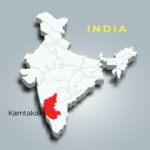Jharkhand Mukti Morcha (JMM): 8 Powerful Insights Into Its Legacy and Impact on Jharkhand Society
The Jharkhand Mukti Morcha (JMM) is a political party in India that has played a key role in the creation of Jharkhand as a separate state and has significantly impacted the socio-political landscape of the region. Founded in 1972, the JMM has been at the forefront of advocating for the rights of tribal communities and the indigenous population of the region. This article delves into the history, significance, and cultural impact of the JMM, exploring how it has influenced daily life in Jharkhand and why it remains a major political force in the state.
History of Jharkhand Mukti Morcha (JMM)
The Jharkhand Mukti Morcha was founded by Shibu Soren, a prominent tribal leader and freedom fighter, with the primary goal of creating a separate state for the tribal communities of South Bihar (which later became Jharkhand). The movement was a direct response to the economic neglect and marginalization of the tribal people within the larger state of Bihar. It was also fueled by the desire to preserve the distinct cultural identity of the tribes of Jharkhand, who felt their rights to land, resources, and self-governance were being overlooked by the state government.
The JMM played a pivotal role in Jharkhand’s creation as a separate state in 2000, advocating for the region’s political autonomy and the protection of tribal rights. The party’s slogan, “Jai Jharkhand”, became synonymous with the struggle for the rights of indigenous people and the demand for a separate state. Throughout its history, the party has been known for its strong advocacy of tribal welfare, land rights, and economic justice.
Daily Life Impact of Jharkhand Mukti Morcha (JMM)
The JMM’s influence is most visible in the daily lives of Jharkhand’s indigenous population. The party has been a vocal advocate for the rights of tribals, focusing on issues like land acquisition, resource distribution, and educational access. The JMM’s policies have been geared toward ensuring that the tribal communities benefit from the natural wealth of the region, such as coal, iron ore, and bauxite, which have long been exploited by large industries without adequate compensation to the locals.
One of the most notable impacts of JMM’s policies has been the emphasis on land rights. The party’s leadership has been instrumental in ensuring that the tribals maintain control over their lands and that these lands are not unfairly taken by corporations or the government. Through protests, legislative measures, and political pressure, the JMM has fought to protect tribal land from displacement, a critical issue in a region where mining activities and industrialization are rampant.
Key Facts About Jharkhand Mukti Morcha (JMM)
- Founded in 1972: The Jharkhand Mukti Morcha was established by Shibu Soren to advocate for the creation of a separate state for the tribals of South Bihar.
- Tribal Rights Advocacy: The JMM has been a long-standing champion of tribal rights, focusing on issues like land rights, education, and social welfare.
- Creation of Jharkhand: The JMM played a crucial role in the creation of Jharkhand as a separate state on November 15, 2000.
- Key Leaders: The party has been led by Shibu Soren, and his son, Hemant Soren, who has served as the Chief Minister of Jharkhand multiple times.
- Electoral Success: The JMM has been a significant political force in Jharkhand, with several leaders from the party holding key political positions in both the state and national governments.
- Focus on Secularism: The JMM has always positioned itself as a secular party, advocating for the unity of different communities, including tribals, Dalits, and other marginalized groups.
- Coalition Politics: The party has often formed coalitions with other regional and national parties, balancing the interests of the tribals with the broader political landscape.
- Cultural Preservation: The JMM has worked to preserve the cultural identity of the indigenous tribes of Jharkhand, promoting tribal festivals, languages, and customs.
Significance of Jharkhand Mukti Morcha (JMM)
The significance of the Jharkhand Mukti Morcha cannot be overstated. It was the party’s relentless struggle for the rights of the tribal communities that led to the formation of Jharkhand as a separate state in 2000. The creation of the state allowed the tribal communities to have more direct control over their resources and governance, a crucial step in addressing decades of marginalization.
The JMM has also been central to the political discourse in Jharkhand. The party’s leadership has consistently called for resource-based justice, ensuring that the state’s natural wealth benefits the local people rather than external corporations. By prioritizing tribal welfare, the JMM has shaped policies that directly impact daily life in Jharkhand, such as land reforms, healthcare, and education.
Another important aspect of the JMM’s significance is its role in preserving the tribal identity. The party has been a strong proponent of tribal culture, including its music, dance, and language. These cultural traditions are not only celebrated during festivals but are also incorporated into the state’s education system and governance, ensuring their continuation for future generations.
Observances and Wishing the Jharkhand Mukti Morcha (JMM)
One of the key observances associated with the JMM is Jharkhand’s Foundation Day on November 15, which marks the state’s creation. This day is a time for the people of Jharkhand, particularly the tribal communities, to celebrate their cultural heritage and achievements. It is also a day for the JMM to reflect on its role in securing the rights of the tribals and to reaffirm its commitment to the welfare of the people.
Wishing the Jharkhand Mukti Morcha and its leadership on this day is a way to honor their ongoing efforts for tribal empowerment and the betterment of the state. The party’s achievements in securing tribal rights and resource-based justice are vital to ensuring a brighter future for the region’s indigenous communities.
FAQs About Jharkhand Mukti Morcha (JMM)
- Who founded the Jharkhand Mukti Morcha? The JMM was founded by Shibu Soren in 1972 to advocate for the creation of a separate state for the tribals of Jharkhand.
- What was the primary goal of the JMM? The primary goal of the JMM was to create a separate state of Jharkhand and to protect the rights of the tribal communities living in the region.
- How did the JMM contribute to the creation of Jharkhand? The JMM played a leading role in the Jharkhand movement, which eventually led to the creation of Jharkhand as a separate state on November 15, 2000.
- Who are the key leaders of the JMM? Shibu Soren, the party’s founder, and his son, Hemant Soren, who has served as the Chief Minister of Jharkhand, are the key leaders of the JMM.
- What are the core issues the JMM focuses on? The JMM primarily focuses on tribal rights, land reforms, social welfare, resource distribution, and cultural preservation.
Conclusion
The Jharkhand Mukti Morcha (JMM) has played a critical role in the socio-political evolution of Jharkhand. Its efforts in advocating for the tribal communities, securing land rights, and creating a separate state have had a transformative effect on the region. Through its strong political ideology and cultural preservation efforts, the JMM continues to shape the future of Jharkhand, ensuring that the rights of its people are upheld. As the state moves forward, the JMM’s role in promoting tribal welfare and resource justice will remain crucial to its ongoing development.











Hi! Do you use Twitter? I’d like to follow you if that would be okay.
I’m undoubtedly enjoying your blog and look forward to new posts.
great publish, very informative. I ponder why the opposite specialists
of this sector do not realize this. You must proceed
your writing. I am sure, you’ve a great readers’ base
already!